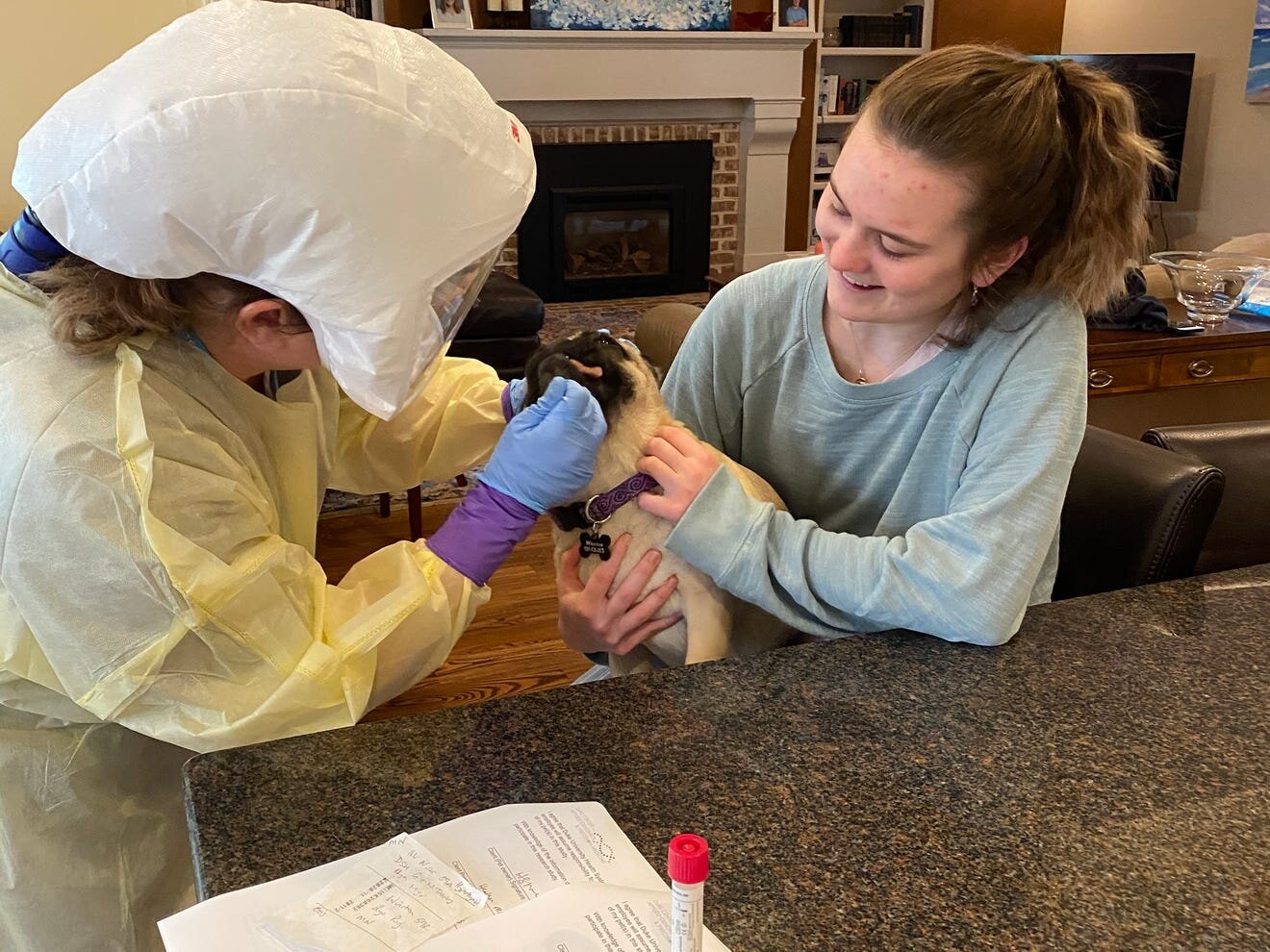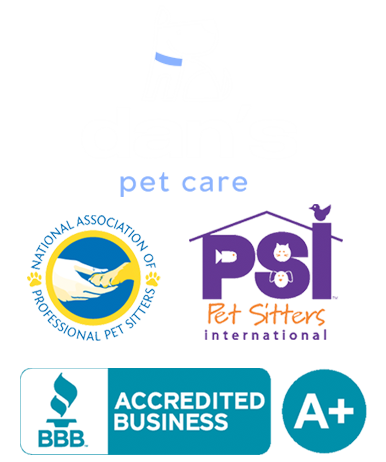Winston being a good boy getting his test done.
A dog has officially tested positive for COVID-19 in the United States. Cases involving two dogs and cats arose in Hong Kong, but this is the first instance of a pet contracting the disease in America. A pug named Winston from Raleigh, North Carolina tested positive for coronavirus on April 1st, 2020. The family’s two other pets, another dog and a cat, were also tested. Thankfully, the other pets both tested negative.
Similar to the other cases of COVID-19 in pets, Winston’s owners had already contracted coronavirus before his own diagnosis. Due to the quarantine, they were obviously in close proximity, meaning Winston was at a high risk of exposure. Both of Winston’s owners work in the medical field, and were especially vulnerable to contracting the virus in the first place. Owner, Heather McLean is a hospital pediatrician, vice-chair, and an associate professor at Duke University. Her husband, Sam, works as a researcher and emergency physician at The University of North Carolina. Heather and Sam began experiencing itchy throats and headaches in the middle of March 2020. At first, they attributed the symptoms to seasonal allergies (as a lot of people have), but the symptoms eventually became more severe.
The family noticed something was wrong with Winston when he didn’t eat breakfast one morning. As all pet owners know, when your pet turns down food, you know something is up. The next big alarm came when Winston started showing a more prominent symptom; persistent coughing.
Once the McLean family recovered from the disease, they enlisted to participate in a study orchestrated by Dr. Chris Woods. Woods is a virologist at Duke University and one of Heather’s colleagues. Since the beginning of April, a crew has conducted a series of blood tests and nasal swabs for all members of the family, pets included.
The CDC recommends you exercise the same caution for your pets as you would for your other family members. According to CDC guidelines,
“there is no evidence that animals play a significant role in spreading the virus that causes COVID-19.”
They also advise,
“If a person inside the household becomes sick, isolate that person from everyone else, including pets.”
They go on to add, just to be safe;
“Do not let pets interact with people or animals outside the household.”
Health experts haven’t ruled out the chance of animals serving as a vessel of sorts, where you could contract the virus by touching the surface that it had landed on. This can include the animal’s fur. However, they remain adamant that there is no evidence of animals actively spreading the virus in the same way humans do. The Iowa State Director for the Humane Society of the United States suggests giving a bath to new dogs arriving home from the shelter. He states, “Soft surfaces (such as fur), don’t transfer the virus as well as stainless steel or plastic." But it’s always better to be safe.
We all love a happy ending. We’re happy to report that Winston did indeed make a full recovery. His family says he is already back to his typical, playful self. As the CDC advises, please continue to use caution with all members of your family and limit exposure.







